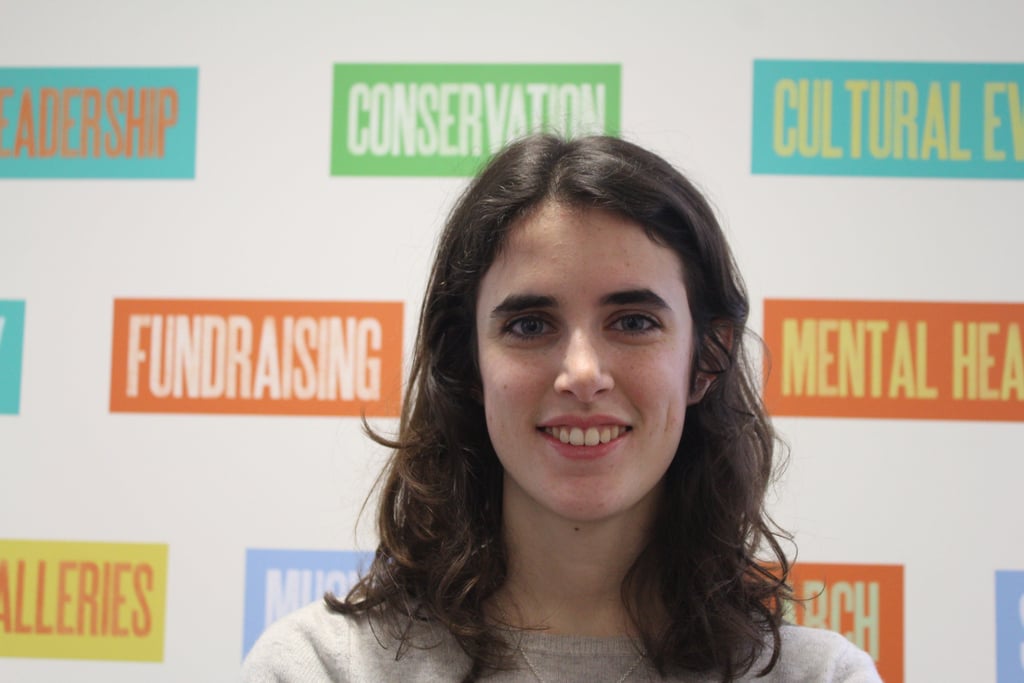Fausta Gabola is in her third year studying BSc Human Sciences. She’s volunteered with Salusbury World Refugee Centre, where she helped out as a Homework Club Volunteer. Salusbury World Refugee Centre offers emotional and educational support to child refugees settled in the UK, and helps them adjust to UK Life.

To get us started, tell us a little about your volunteering. What kind of things did you do, how long did you do them for, and how often did you do them?
I was helping out with Salusbury World Refugee Centre - it’s based at Salusbury Primary School, which is in Queen’s Park, and there’s a little room on the side where they lead the sessions. The sessions are mainly run for kids who need extra support; who may not have parents who speak English at home and/or who come here as a refugee. As a volunteer, You come in once a week and help the kids out with their homework. There were about 10 kids, and the number of volunteers varied from time to time.
What inspired you to volunteer with this organisation?
I really wanted to work with children, and I was looking for an opportunity to help children who maybe didn’t have help at home and that’s how I found Salusbury World. They’re quite unique because a lot of opportunities with small children are based very far away in London. I chose this one because it was close to UCL, and that was very convenient.
What were the age range and ability level of the children that were you helping with the homework?
The kids were in Primary School, so they were between 6 and 11 years old. Sometimes the children were born in the UK or came here at a young age, but others had only been in the UK for a year or two. Most of the time, you could see that some were struggling with English, but they were extremely bright kids and were learning really fast and wanted to learn more. A couple spoke English very well but were struggling because they didn’t have that support background that other kids had. We also helped pupils who were in need of more challenging school work; for example, if we had a kid who was extremely bright and did very well in school, and our job was to give them more stimulating and challenging exercises – as their parents maybe didn’t speak English very well, so it was something he was not getting at home.
You've talked a little about the challenges of resettling in the UK - on that note, what do you think has been the biggest challenge for that project
There were some children that had difficult moments because of their experiences; some would be angry and frustrated, and you knew they'd already been through a lot. It’s hard in a group of children to make exceptions, as you want to treat them all equally, but obviously given the experiences of the children, this can’t always be done. It was difficult to say yes to one child, and no to another – but our volunteer coordinator managed more difficult situations on our behalf.
Although we always tried to have a volunteer for each child, sometimes we’d have little groups of children per volunteer and this could be a challenge - sometimes it’s difficult to manage a group of children as they’re all at very different stages in their education
What do you think was the most enjoyable part of what you did?
I honestly just really loved seeing them learn, and teaching children was great. Helping them was very rewarding but also fun: it was really nice to interact with the kids. And I felt like I was helping them out.
Has this lead you to do anything else working with children?
Yes – I did want to do more volunteering but actually ended up doing paid work with Children, and I do think that’s what inspired me.
Would you want to do this for a career?
I do enjoy working with children – but it’s something I’d do on the side to gain other skills.
Is there anything else you’d like to tell us about your experience?
I would definitely recommend this to other people, and I convinced my flatmates to join. They really enjoy it – it is challenging because of the experiences these kids have had but it’s really rewarding. It doesn’t take that much time because it’s only twenty minutes on the Overground and you get travel expenses paid for. They were very chill about exam time too, and it was a really nice thing to do.
If Fausta’s experiences have inspired you to get involved, check out our other Refugee and Migrant Support opportunities! Or if something else strikes your fancy, please visit our online directory to view all the current roles we have on offer with our 400+ London-based partners!